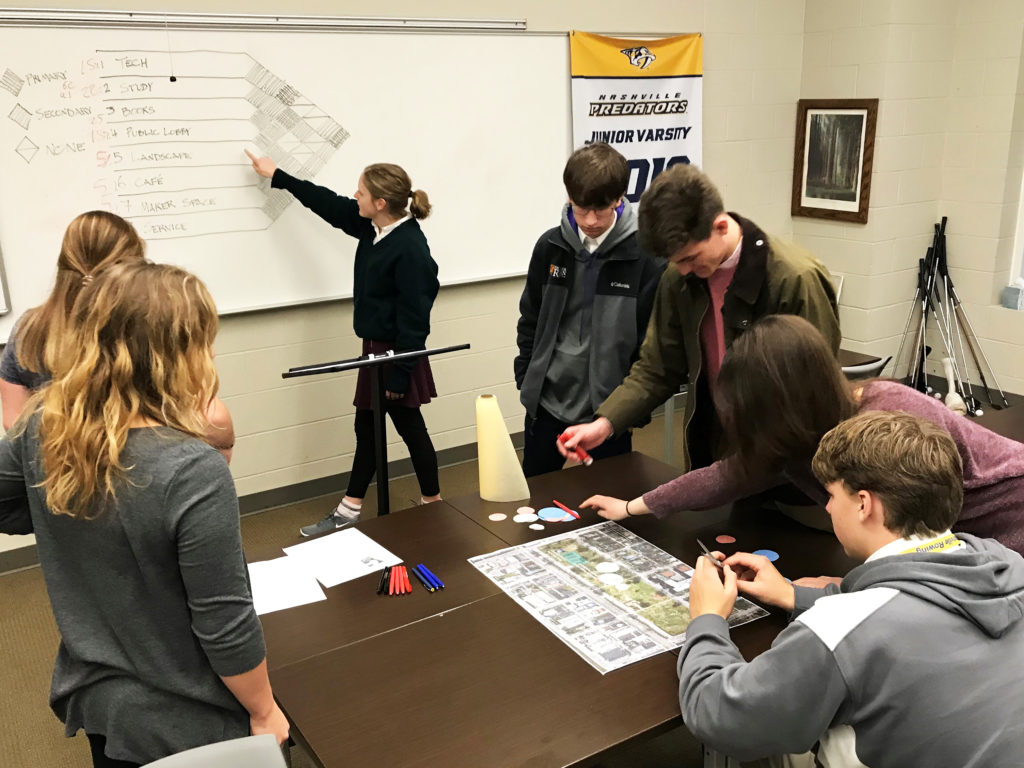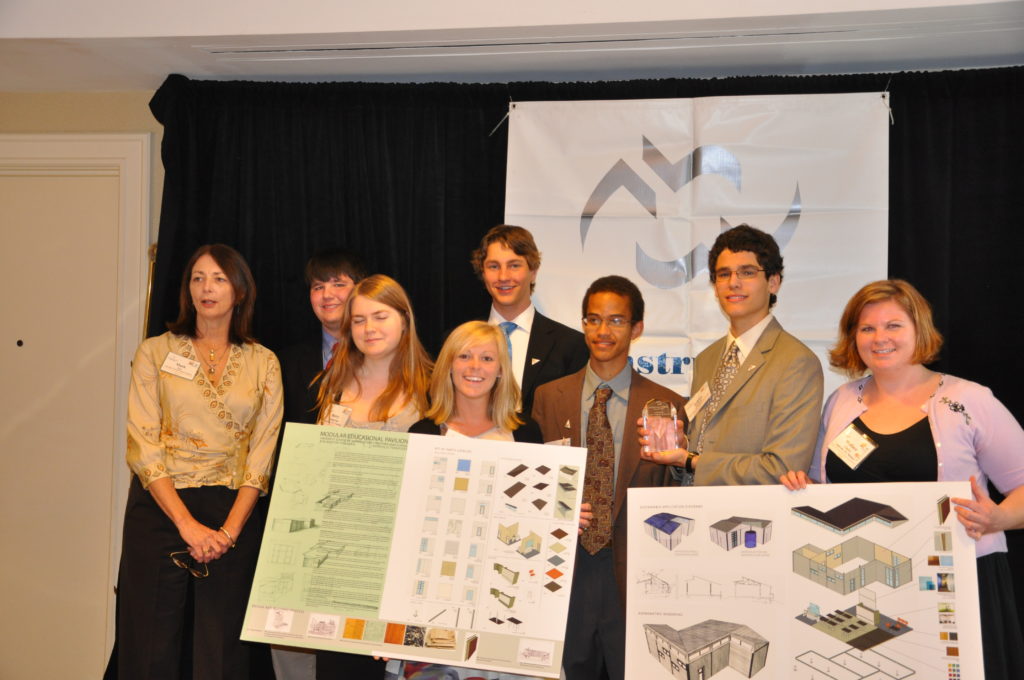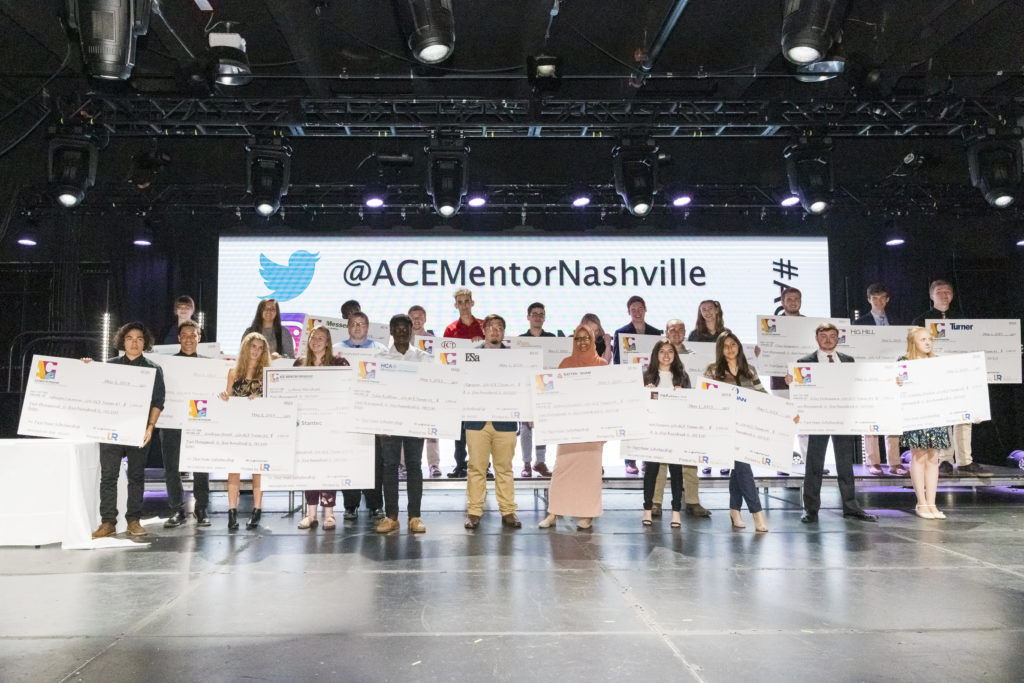This May ACE is celebrating 25 years. Over the years ACE, an after-school program that aims to get high school students interested in careers in architecture, construction and engineering, has helped grow and diversify the industry workforce through mentorship. We’ve been lucky at Gresham Smith to be a part of the ACE family. I participated as a student and now as a mentor. Across the firm, many folks participate: members of our Nashville office helped start the ACE Mentor Program of Nashville, we’ve participated in the national competition (our student group came in second!), and colleagues have served and currently serve on various chapters’ Board of Directors. To help celebrate the ACE program, I sat down with some teammates to discuss what ACE mentorship has meant to them.
Clint Harris (CH): Let’s hear how you all got involved with the ACE program.
Kevin Crumley (KC): It was through word of mouth at Gresham Smith that I was able to hear about it. We have a lot of teammates involved with and passionate about ACE.
Bryan Tharpe (BT): In the mid-2000s I was teaching a class at Tennessee Tech, but that was coming to an end. I had really enjoyed it and wanted to find a way to stay involved with students. At the same time Gresham Smith was helping to start up and sponsor an ACE program in Nashville, so I got involved.
Anna Barnes (AB): I remember as a high school student having people guide me into architecture, particularly through my drafting class where I was the only girl. Having mentors was so important and so when I came to Gresham Smith in 2006 after college, Brent Hughes [a vice president in our Healthcare practice; he currently serves on ACE Nashville’s Board of Directors] told me about the ACE program and I got involved.
CH: I got started as a high school student back in 2003. Coincidently, Gresham Smith was the design mentor at that time and people I work with now – Brent Hughes, Rob Hamby and James Bearden – were my mentors. It’s what inspired me to go into architecture; before the experience I didn’t know much about the profession.

CH: When I was a student getting hands on and seeing real-life examples was so important. It helped “sell” these career paths. How do you get the students engaged?
KC: I’ve been working with MLK Magnet. In the Fall semester the students go to mentors’ offices. It’s been great to show off Gresham Smith, share the projects we’ve been working on and show them what it’s actually like to work in Civil Engineering.
AB: I think using technology is important. The year we did the national competition we had the kids use SketchUp, which might be a simple program to us, but it helped them really understand the project.
BT: One of my first years I had a bit of a communication fail. I was asked to present on Structural Engineering for one of the sessions. I thought “Oh, I’ve got this!” and I just brought a set of plans, some example calculations and tried to walk through those. But it takes a while to understand how to read plans. Imagine what these students were thinking…they were falling asleep! The next year I brought in tinker toys for an exercise doing load testing…and then they broke my tinker toys. But, in all seriousness, we were able to demonstrate not only structural activities but also created activities that somewhat mimicked the real world, working in teams against deadlines.
CH: What has been rewarding about your ACE involvement?
AB: The year we pursued the national competition was such a rewarding experience. Our student group traveled to Washington, D.C. to present their project to a group industry leaders. It was great to see all of it “clicking” for them and succeed at a project that they drove.
KC: Overall, being around bright and passionate students is incredibly impressive. For example, it’s encouraging when students are able to quickly grasp some of the hydrology and stormwater management concepts we present and apply them to their projects. It is encouraging to me that our efforts and what we are teaching is actually making a difference.

CH: How has mentoring impacted your career? What has ACE meant to you?
KC: Even beyond the sense of accomplishment and inspiration working with students provides me, ACE also provides networking opportunities. Working alongside other professionals allows us to gain insight, exchange ideas and learn from one another.
AB: For me, it’s what Bryan said about the tinker toys. Sometimes you have to take a step back and think about how you can explain something you might easily grasp, but translate that for other people. That’s helped me in my relationships with clients. For example, I think about what questions they might have when we present a set of plans. I think through how they might be viewing the project to better involve and bring them along through the process.
BT: You have hit it on the head. Learning to relate and work with people who don’t have the same background or schooling has improved my client relationships as well as my relationships with staff. My experience has enhanced my communication and inter-personal skills, so ACE has been good for me, not just the students.
AB: In this deadline-oriented, sometimes stressful profession, people can get burnout. Mentoring allows me to look at the career field through the eyes of students and reignites my passion – it reminds me why I decided to become a designer in the first place.
BT: So true, we can get caught up in our own careers and the challenges of the day. But the A/E/C industry is facing a talent shortage, so high school is a critical time to reach bright young minds and get them interested in these careers. Sometimes we forget the real responsibility we have to bring up the next generation of architects, engineers and contractors.
CH: Mine is easy…I wouldn’t have this career if it wasn’t for ACE. I’m so thankful for everyone that helped me and I know anyone else who grew up as an ACE student is grateful. I’m watching my city grow and change as I’m sitting here today and that’s in part because of design and engineering. It has potential to change society, so it’s critical we pass knowledge on to the next generation who will continue to shape our world.
